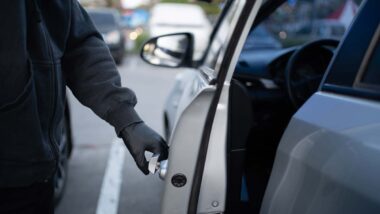Top Class Actions’s website and social media posts use affiliate links. If you make a purchase using such links, we may receive a commission, but it will not result in any additional charges to you. Please review our Affiliate Link Disclosure for more information.
Nobody likes having to deal with car problems, especially when they seem to keep recurring and never really get fixed. Fortunately, many states have laws known as “lemon laws” intended to protect consumers from eating the cost of these seemingly endless repairs. Not all states have in-depth lemon laws, and some protect consumers more extensively than others – such as the lemon laws in Florida.
Lemon laws may vary by state, but the general purpose is the same: car manufacturers are required under state lemon law to repurchase a new vehicle if it has a serious defect and, despite the manufacturer’s attempts to repair it, the manufacturer can’t get it fully fixed in a reasonable amount of time. Some states even address the question of returns of purchased vehicles.
The Florida Lemon Law provides relief to consumers who have persistent problems with their vehicle that dealers are unable to fix.
What is Florida Lemon Law?
The Florida Lemon Law is a state statute that provides remedies to customers who have purchased a vehicle with “nonconformities” which, despite multiple repair attempts, have not been fixed. It has nothing to do with vehicles damaged in car accidents.
Florida law defines a “nonconformity” as a defect in the vehicle that impairs the vehicle’s use, value, or safety. This can include a variety of problems such as paint faults, leak of oil or other liquids, mechanical defects, electrical problems, and more.
Vehicles must fall into one of the following categories in order to be eligible for the Lemon Law:
- Vehicles purchased or leased for personal, family, or household uses
- Vehicles acquired used within the original owner’s first 24 months of owning the vehicle
- Vehicles which are leased or purchased and are covered under warranty
The Lemon Law provides both refund and replacement remedies. Manufacturers may be entitled to a refund of non-financed collateral charges and payoff of any financed expenses. Replacement remedies will provide a new vehicle to replace the damaged one.
What is Covered by Florida’s Lemon Law?

Florida’s lemon law does not cover any type of alteration made to the vehicle unless the modification is completed by the manufacturer or “the authorized representative of the manufacturer.”
Interestingly, such an authorized representative doesn’t have to be the dealership where the owner bought the vehicle.
According to the Journal of Economics and Business, an authorized service agent can be anyone the manufacturer has authorized to service its brand of vehicles.
The Florida lemon law is effective the first 24 months the consumer owns the new vehicle and relates to warranty coverage, which generally covers manufacturing or design defects. A manufacturing defect is an issue caused by a blip in the production line, such as a cracked engine. A design defect is an inherent problem that will render an entire product line to incur the same malfunction.
Many problems qualify for coverage under the Florida lemon law. According to the Better Business Bureau, problems covered by Florida lemon law include defects or conditions that substantially impair the value, safety, or use of the vehicle. These problems are called “nonconformities” and must also not conform to the warranty that applies to the vehicle.
An example of a design defect was the rear-placed engine of the Ford Pinto of the 1970s, which often turned rear-end collisions into dangerous, flaming collisions.
Does the Law Only Apply to New Cars?
The lemon law in Florida applies to new and demonstrator vehicles, which are vehicles driven by the dealership but not registered with the state. Auto Blog cautions drivers considering purchasing a demo vehicle, noting that they may have hidden wear and tear that could be costly later on. Though sometimes demo vehicles come at a discount, their possible problems may not be worth the savings.
New vehicles included under Florida law are those purchased or leased from a dealer in Florida. Additionally, some used cars are included in the law, in limited circumstances. Your vehicle may be covered under the Florida lemon law if you purchased it in state from the vehicle’s first owner within 24 months of the first owner’s original purchase of the vehicle. Autos whose problem is caused by a car accident are not eligible.
How Does Florida Lemon Law Work?
For a vehicle to be deemed a lemon, the vehicle must meet certain standards and you must take specific action. Under Florida Lemon Law, vehicles are eligible if they suffer from defects that haven’t been repaired “within a reasonable number of attempts” by the car dealership.
After these attempts, consumers must send a final opportunity for the manufacturer to repair the defect if they wish to take action under the Lemon Law. The manufacturer then has 10 days to direct the consumer to a repair facility and 10 days after the delivery of the vehicle to fix the non-conformity. If it’s a recreational vehicle, the manufacturer has 45 days to correct a nonconformity. Cars that remain unrepaired after these attempts are dubbed “lemons.”
If a vehicle is out of service for nonconformity repairs for more than 15 days, the owner or lessee can send written notification to the manufacturer.
You must provide a notice to the manufacturer about the problem within 24 months after you received the vehicle. If the manufacturer makes the required three attempts at repair but the vehicle is still in disrepair, you then must send another notice. This notice will give the manufacturer one last chance to fix the problem before you file a claim under the lemon law.
The manufacturer has one final attempt to repair the nonconformity after this notification. Once a vehicle is out of commission for more than 30 cumulative days, the vehicle is declared a “lemon.”
After a vehicle qualifies as a lemon, consumers can file a dispute either with the manufacturer’s state-certified informal dispute settlement program or they can apply for a dispute directly with the Florida Attorney General’s Office. Even if a manufacturer has its own dispute program, consumers can file a claim with the Florida New Motor Vehicle Arbitration Board if the private program hasn’t made a decision within 40 days of filing, or if the consumer isn’t happy with the decision.
If consumers disagree with the Florida New Motor Vehicle Arbitration Board’s decision, they can appeal it within 30 days in Circuit Court. If the disposition of an appeal favors the owner or lessee of a vehicle, they can recover the award, attorneys’ fees, court costs, and an additional $25 per day for every day waiting beyond the 40-day receipt of a board decision.
Remedies Under Florida Lemon Law
Consumers who can show that they purchased a lemon can be entitled to certain remedies or damages under the state’s lemon law, according to the BBB. Specifically, carmakers must provide the following to the lemon owner:
- The purchase price of the vehicle
- Sales taxes
- Service charges
- Charges for installed items
- Earned finance charges
- Costs caused by the nonconformity
The BBB warns that the purchase price does not include the debt from a trade-in or previous vehicle, however. In addition, lemon law awards can be subject to a number of deductions, called “offsets.” Offsets take into account the use of the vehicle by the consumer and are calculated using the number of miles the owner drove.
Lessees are able to recover the basic repurchase amount of lemons, notes the BBB. This includes the cost to the lessee and reasonably incurred additional and incidental charges. The lessees’ award is also subject to deductions.
In addition, lemon owners can get a replacement vehicle under Florida lemon law. According to the BBB, the replacement must be identical or a reasonable equivalent to the lemon.
Do I Need an Attorney?
When attempting to qualify for a refund or a replacement under your state’s lemon law, it is important that you have good records in order to best support your claim. Viable evidence can include:
- service records
- communications with your dealer/manufacturer
- phone records
- anything else that might show your vehicle is a qualifying lemon
If you live in Florida and believe your vehicle may qualify as a lemon, after several attempts to fix a defect, you may have legal recourse under Florida Lemon Law.
Navigating lemon laws can be complicated, and dealing with a car manufacturer or dealership can be stressful, but consulting an attorney can help. Top Class Actions can connect you with an experienced attorney who can help you determine if you have a claim and navigate the complexities of your state’s lemon law.
Join a Free Lemon Law Defective Vehicle Investigation
If you have a defective vehicle that is under warranty and is still not fixed after multiple attempts, you may qualify for help under your state’s Lemon Law.
(Note: Residents of North Carolina do not qualify for this investigation.)
Learn more by filling out the form on this page for a free case evaluation by experienced Lemon Law attorneys or call (877) 289-0615.
ATTORNEY ADVERTISING
Top Class Actions is a Proud Member of the American Bar Association
LEGAL INFORMATION IS NOT LEGAL ADVICE
Top Class Actions Legal Statement
©2008 – 2024 Top Class Actions® LLC
Various Trademarks held by their respective owners
This website is not intended for viewing or usage by European Union citizens.
Get Help – It’s Free
Join a Free Lemon Law Defective Vehicle Investigation
If you qualify, an attorney will contact you to discuss the details of your potential case at no charge to you.
PLEASE NOTE: If you want to participate in this investigation, it is imperative that you reply to the law firm if they call or email you. Failing to do so may result in you not getting signed up as a client or getting you dropped as a client.
Oops! We could not locate your form.













